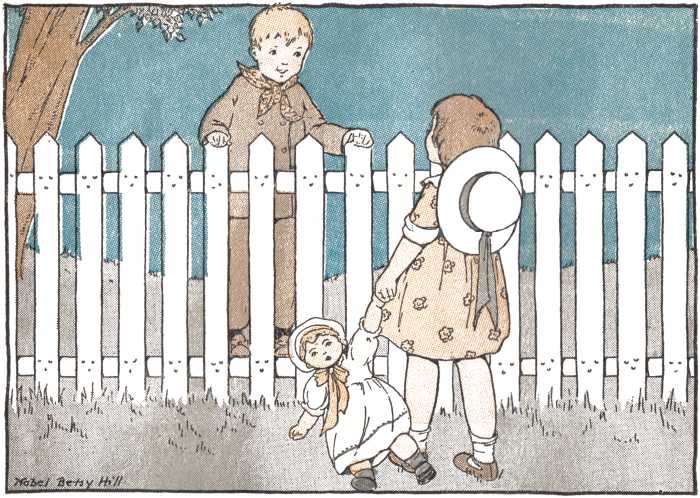
- More thrift store and reseller reports, not linked earlier: Blacksburg, Va. (“a lot of customer complaints at the YMCA at Virginia Tech since the thrift shop pulled kids’ toys off its shelves”), Chapel Hill/Carrboro, N.C. (“many patrons are upset” at absence of children’s items), Sioux City, Iowa (“To be on the safe side, Goodwill removed from the sales floors nearly all its used children’s clothing and all its toys”), Le Mars, Iowa (youngster’s outing ends in tears; items in storage for now).
And yet at many other stores — in other states or cities, maybe even down the block in the same town — decisions on what to drop have been much more selective. Thus New Orleans (large thrift store in St. Charles Parish “no longer accepting small toys, painted wood items or clothing with trinkets or toys attached to them,” those being, of course, a small fraction of the items that could lead to an inadvertent CPSIA violation), and Lufkin, Texas (list of goods Goodwill won’t accept includes bunk beds, bicycle helmets, embellished books, and many others, but a good bit narrower than CPSC guidance would suggest). The shop I visit most often, in a relatively prosperous NYC suburb, had a sparser-looking-than-usual selection yesterday, which nonetheless included items that would raise a definite eyebrow under the CPSC guidelines, such as kids’ athletic shoes with metal lacing grommets. And it’s not hard to find thrift outlets with relatively high profiles in their community — I won’t name names for fear of getting them into trouble — that don’t seem to have dropped much of anything. You’d hardly imagine that CPSIA was supposed to be a uniform national law. - Related: Riverside, Calif. Press-Enterprise, “Goodwill Industries International said it could potentially lose $134 million nationwide in the coming year if forced to dispose of all children’s clothing and products, according to spokeswoman Lauren Lawson.” And the Naperville, Ill., Sun covered the headaches of maternity and children’s reseller Connie Ballas (From My Room).
- Hugh Hewitt’s popular conservative radio show devoted an hour to the law yesterday, interviewing attorney Gary Wolensky of Snell & Wilmer, who represents manufacturers and whose discussion primarily focused on the headaches they face. The show drew a strong call-in reaction and has already led to a flurry of online interest in CPSIA reform.
- Meanwhile, Jennifer Grinnell of Sherborn, Mass. writes that CPSIA reform needs to be approached as more than a right-vs.-left, blue-red, Dem-Rep political football [Change.org]
- When the New Orleans Times-Picayune interviewed local toy stores, the independent retailer was finding the law “burdensome” and “very cumbersome” as she tried to communicate with all the producers of items in her stock, while the franchise operator seemed to be having a much easier time of it because he carried only items on a checklist from national and could piggyback his compliance paperwork on headquarters’. Yes, that sounds about right.
- Don’t toss those pre-’85 kids’ books, thrifters! Set them aside and await orders from D.C.! That seems to be the advice of Examiner columnist (and former children’s bookseller) Diane Petryk Bloom, who’s confident that a law this bad will be amended and suggests that in the mean time some civil disobedience might be in order, advice that might not be taken readily by resellers staring down the business end of those $100,000 potential fines.
Let’s assume she’s right that most people in the thrift store business can’t bring themselves to leave perfectly good children’s books out on the curb, and instead tuck them into storage for the time being or look the other way while an employee “borrows” them for home use. What happens next, as the weeks turn into months (or perhaps years) with no action from Henry Waxman & co.? The main mechanism by which we will lose older books is not so much that thrift stores will toss them in the trash, as that they’ll refuse to accept them as donations or consignments in the first place, while other outlets worried about legal liability (such as online auction sites) adopt similar policies. Once there’s no convenient way to dispose of the books even as donations, families will simply discard most of them (with occasional collectible/rarity exceptions) when the kids grow up, when moving house, or when winding up a family estate. It’s not as if there’s likely to be much press coverage of these micro-events, which doesn’t make them less than real.ParentDish and Etsy also have active threads in progress on the issue of older children’s books.
- Some other blog talk: Blue Rose Girls, Kora in Hell/WordSmoker (rude language), Lex Fortis (satire), and of course leading CPSIA-watchers Deputy Headmistress/Common Room (on press coverage, Consumers’ Union and dragons) and Valerie Jacobsen (what? you mean CPSC would target small business with punitive actions?)
- Sorry, even if your little girl has been saving up her allowance for one of our pretty hair barrettes, we can’t sell it to you, unless you want it for her dog [MaidenUS]

Public domain image: Grandma’s Graphics, Mabel Betsy Hill; dog image from MaidenUS.


 For many other users and potential users of the technology, however, the problem has merely been kicked forward to next year in the absence of any willingness by Congress to clarify or change the law. Some discussions:
For many other users and potential users of the technology, however, the problem has merely been kicked forward to next year in the absence of any willingness by Congress to clarify or change the law. Some discussions: